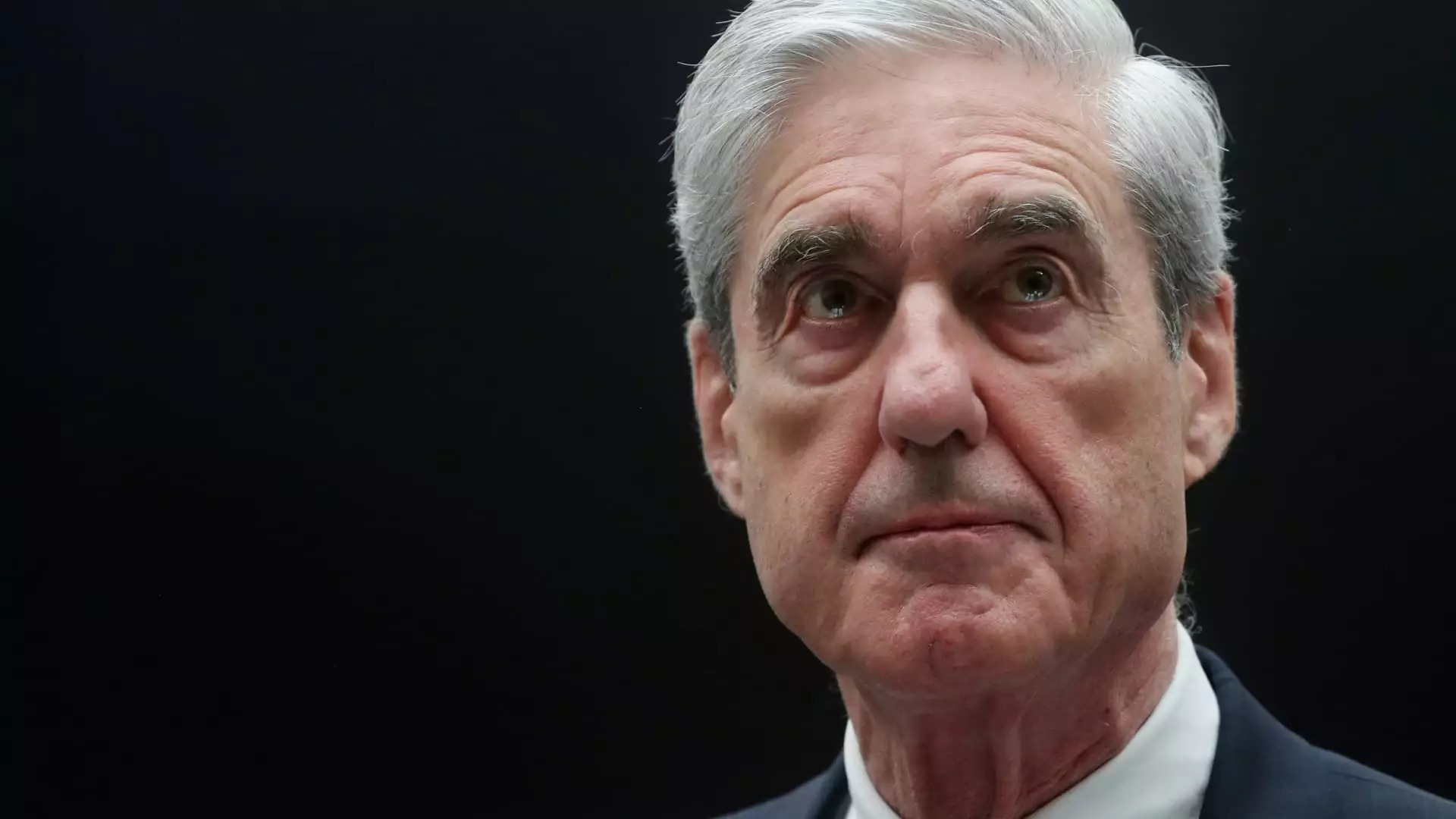The recent termination of Peter Carr, a former spokesman for two high-profile special counsels, raises unsettling questions about the integrity of the legal processes surrounding presidential power. Carr’s departure from the Department of Justice (DOJ), precipitated by Deputy Attorney General Todd Blanche—a man whose own judicial history is undeniably intertwined with the former president—signals far more than a simple career transition. It unveils the delicate fabric of trust that has begun to unravel within the agencies responsible for upholding justice in this country.
Carr’s email announcing his termination, poignantly titled “My last email to you,” embodies a bittersweet farewell to a contentious era marked by challenges to the rule of law. His career, which began in 2007, has centered around the tumultuous investigations into President Donald Trump for potential criminal conduct, particularly surrounding accusations of collusion with Russia during the 2016 electoral process. To many, Carr’s exit feels emblematic of a deeper political maneuvering that threatens to undermine the principles of transparency and accountability.
Bureaucracy or Betrayal? The Politics Within Justice
This latest upheaval within the DOJ is heavily laced with political implications. Blanche’s prior role as a defense attorney for Trump in criminal cases not only raises eyebrows but casts a long shadow over the impartiality of ongoing investigations into Trump’s conduct. One cannot help but ponder whether Carr’s dismissal is a sign of the broader political currents seeking to sweep a scrutinized legacy under the rug. Promises of an impartial judicial system are looking increasingly hollow as decisions made by individuals like Blanche seem to morph into instruments of partisan warfare rather than justice.
The timing of Carr’s firing also merits scrutiny. In late January, several career prosecutors were let go—a trend that suggests the DOJ is not just making staffing changes but potentially recalibrating its direction away from robust investigations into Trump. One could argue this dismissal might serve to signal to other employees the potential repercussions of closely scrutinizing an administration that has repeatedly shown a willingness to prioritize loyalty over legality.
The Mueller Report’s Lingering Shadow
Reflecting on the Mueller investigation and subsequent findings offers further insight into the current fray. While Mueller ultimately did not charge Trump, his assertion that a sitting president could not be indicted complicates the narrative of accountability. The lingering ambiguity—“not exonerated” versus “not charged”—creates a fertile ground for debate and manipulation. Carr, having served as the voice for the investigation, found himself in the middle of a historically complex scenario, with his role as both messenger and participant fraught with uncertainties.
Now, under the shadow of the twice-impeached former president, Carr’s departure may seem like collateral damage in a war for public perception and political influence. The DOJ’s mandate for justice is facing accusations of becoming a battleground for party allegiance, pushing the quest for truth further down the priority list. Even as calls for clarity surrounding Trump’s actions continue, it feels increasingly like the machinery designed to examine such conduct is stymied by internal and external pressures.
A New Era of Accountability?
As Carr’s tenure closes, the question arises: can this department right itself to reclaim its principled stance amidst such turmoil? The dismissal of a career spokesperson who advocated for transparency reflects unsettling trends in governance—trends that suggest an erosion of accountability at the highest levels of leadership. It remains to be seen whether the DOJ can muster the integrity to pursue justice against powerful figures or whether it will continue to operate under a cloak of political expediency.
The implications of Carr’s firing suggest a far more intricate game than mere personnel decisions. It hints at a potentially systemic fear that those within the corridors of power may soon find themselves either complicit in the avoidance of accountability or silenced through dismissal. The true test of our judiciary will lie in its ability—or inability—to confront elements within its ranks, reaffirming that justice does not bow to the whims of political favor.


Leave a Reply